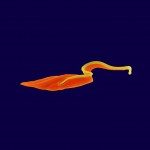Link to Pubmed [PMID] – 9129541
Am. J. Trop. Med. Hyg. 1997 Mar;56(3):343-50
We have previously shown that Plasmodium falciparum recombinant antigens PfEB200, R23, and Pfi72 consistently inhibit opsonization of infected red blood cells by protective hyperimmune Saimiri sera, indicating that they present target epitopes involved in the phagocytosis of infected red blood cells. We report here an analysis of the immune response elicited in naive squirrel monkeys injected with the individual recombinant antigens or with a mixture of the three antigens combined with a synthetic peptide. In the three administration protocols investigated, there was no evidence for the production of antibody contributing to the phagocytosis of infected red blood cells, contrasting with the increase of opsonizing antibodies elicited by these antigens in monkeys with a prior (> or = 500 days) experience with malaria infection. However, the recombinant antigens were highly immunogenic, inducing specific antibody responses to P. falciparum and to the recombinant antigens. When the monkeys immunized with the antigen combination were challenged with blood-stage parasites, there was substantial protection: three of seven immunized animals self-cured and two others experienced a delayed peak of parasitemia. Taken together with our previous findings, these results suggest that PfEB200, R23, and Pfi72 constitute interesting vaccine candidates, and show that the presence of antibodies promoting phagocytosis of infected red blood cells is not a prerequisite for protection after immunization with these antigens in the Saimiri model.

